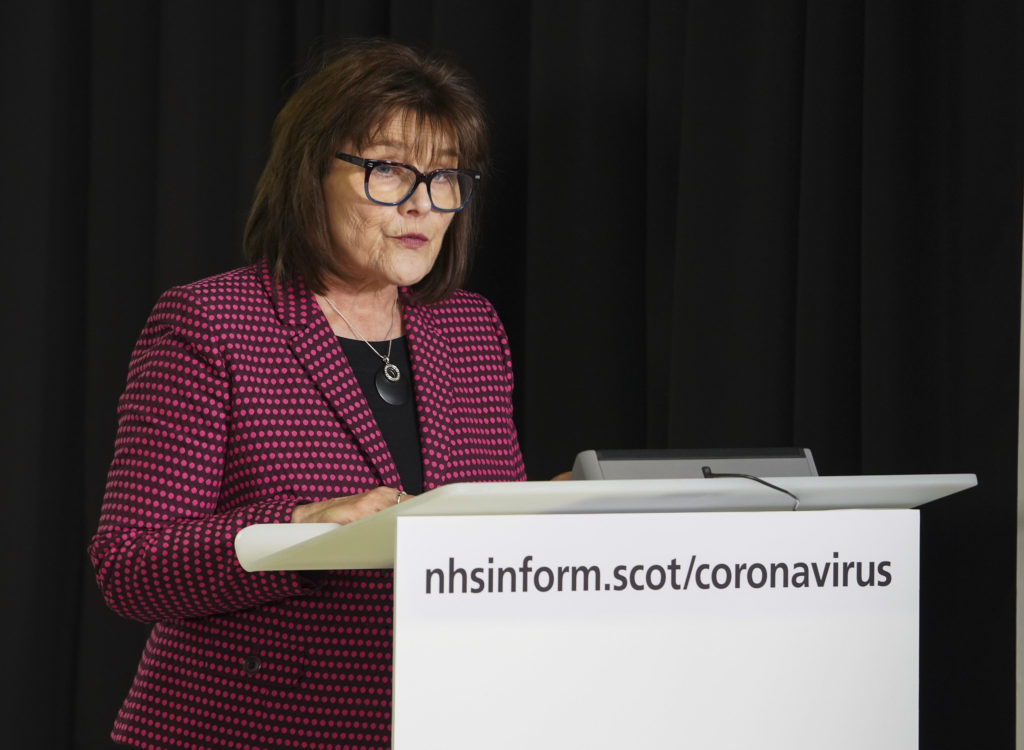New guidance on personal protective equipment (PPE) has been published for health and social care workers responding to coronavirus (COVID-19) in Scotland.
The guidance, which has been agreed by the four UK Chief Medical Officers and Chief Nursing Officers, follows an urgent review of the existing guidance against the latest evidence and WHO advice, on the safest way to protect health and social care staff.
The new guidance includes:
- what type of PPE to use in secondary, primary and community care settings, and when to wear it
- when clinicians need to wear a higher level of protective equipment, and in which settings
- detailed advice around risk assessing use of PPE in a range of different clinical scenarios, including community settings, such as care homes and caring for individuals in their own homes
Health Secretary Jeane Freeman said: “Protecting staff working on the frontline is an absolute priority and I want to thank each and every one of them for their hard work and commitment in this incredibly challenging situation.
“I want our staff to feel as safe as possible and this updated guidance provides clarity so that health and social care staff caring for patients feel confident in which PPE they need to wear in different situations and settings.”
Scotland’s Chief Medical Officer Dr Catherine Calderwood said: “The updates to the guidance reflect the fact that COVID-19 is now widespread in the community, so health and social care workers are more likely to see patients with the virus, some of whom will not have symptoms yet.
“We have introduced new measures to improve the distribution of PPE, including a single point of contact for all health boards to manage local PPE supply and distribution, and an email address for NHS staff to contact if they do not have what they need. This is covid-19-health-PPE@gov.scot. It will be monitored continuously and allow us to act to resolve any specific supply issues more quickly.
“A helpline has also been set up for registered social care providers having problems accessing PPE, with extra staff to prepare orders for social care, additional delivery drivers, longer delivery hours and use of more external delivery companies to increase capacity. Work continues to source further PPE and ensure there is an appropriate supply for all our workforce.”
The Scottish Government also outlined details of the improved process to report COVID-19 deaths that began yesterday.
As part of this new system, 40 deaths, which would not yet have been reported under the old system – because next of kin had not been informed – have been included and allocated to the last three days as appropriate.
The data below shows the running total of the number of deaths reported, under the old and new systems, of those confirmed to have died from Coronavirus across the last few days. There are now 126 deaths confirmed using the new system:
Tuesday 31 March – 69 (previously 60)
Wednesday 1 April – 97 (76)
Thursday 2 April – 126 (86).





